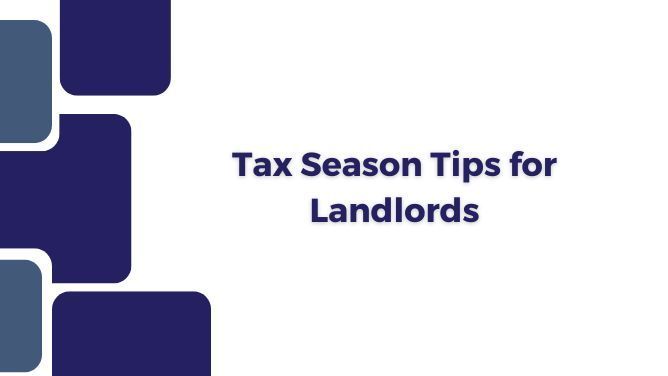California Fair Housing Act: An Overview
Key Takeaways
- California landlords must follow both federal and state fair housing laws, which include broader protections than many other states.
- Compliance impacts every step of property management, from advertising and screening to tenant accommodations.
- Partnering with an experienced property management company like BanCal Properties helps minimize risk and ensures proper compliance.
Managing rental property in California means working under some of the strongest housing laws in the country. At BanCal Properties, we understand how important it is for landlords to comply with these requirements.
The Fair Housing Act and California’s state-level protections shape how landlords advertise, screen, and interact with residents. These rules are not just legal technicalities. They define how you run your business, protect you from costly disputes, and ensure your rental property is open to the widest pool of qualified tenants.
For rental property owners in the San Francisco Bay Area, where diversity is a defining feature of the community, following fair housing laws is both a requirement and an opportunity.
Understanding the basics of the federal Fair Housing Act, California’s broader protections, and the way local rules work together will give you the tools you need to manage your rental responsibly.
Federal and State Fair Housing Protections
The federal Fair Housing Act was passed in 1968 and prohibits housing discrimination based on seven protected classes: race, color, religion, national origin, sex, disability, and familial status. This law applies nationwide, and rental property owners must follow it at every stage of leasing.

California goes further with its own protections under the Fair Employment and Housing Act (FEHA). This law includes all the federal classes but adds others, such as:
- Gender Identity.
- Gender Expression.
- Sexual Orientation.
- Marital Status.
- Source of Income.
- Ancestry.
- Age.
- Immigration Status.
- Primary Language.
That means landlords in California must meet a higher standard than landlords in many other states. Even small-scale landlords are covered by these rules. For example, if you rent out a single-family home in San Francisco, you cannot advertise or select tenants in a way that excludes people based on any protected characteristic.
What These Protections Mean for Rental Owners
Fair housing laws impact your day-to-day management decisions in very real ways. Landlords must keep these rules in mind whenever they interact with tenants or applicants.
When you advertise your property, you cannot include wording that hints at a preference for certain people or discourages others from applying. An ad that says “perfect for young professionals” could be seen as discouraging families. Similarly, a “no kids” or “Christian tenants only” message is a clear violation.
When you screen tenants, you must apply the same criteria consistently to everyone. For example, if you set an income requirement or a security deposit amount, it should apply equally to employed applicants and those using rental assistance programs.

Denying someone solely because they hold a Section 8 housing voucher is illegal in California.
Once a tenant moves in, you may also need to provide reasonable accommodations for people with disabilities. This could mean allowing a service animal even if you have a no-pet policy or permitting grab bars to be installed in the bathroom.
The key is that accommodations should allow the tenant to use and enjoy the property, provided they do not cause undue financial or structural hardship for you as the landlord.
Finally, retaliation is strictly prohibited.
If a tenant files a complaint, reports unsafe conditions, or requests accommodations, you cannot respond by raising the rent, reducing services, or trying to evict them without valid cause.
Enforcement in California
The state agency responsible for investigating housing discrimination complaints is the California Civil Rights Department. Tenants who believe they have been discriminated against can file complaints, and the agency has the power to investigate, mediate, and take legal action.
If a case moves forward, landlords may face financial penalties, attorneys’ fees, or court orders requiring changes in their practices. In serious cases, lawsuits can result in substantial damages.

This is why compliance is not only about doing the right thing but also about protecting your investment from costly disputes.
Additional California Protections
In addition to FEHA, California has other laws that strengthen housing rights.
The Unruh Civil Rights Act applies broadly to all businesses in the state, including landlords, and prohibits discrimination on virtually any arbitrary basis.
The Ralph Civil Rights Act provides additional protections against threats or violence tied to discrimination.
Together, these laws create one of the most comprehensive fair housing frameworks in the country. For rental property owners in the Bay Area, this means you must stay informed not only about federal rules but also about state and local laws that may impose additional requirements under the landlord-tenant laws.
Practical Steps for Compliance
For rental property owners, compliance requires consistent effort. Here are some ways to ensure you follow fair housing laws:
- Review all advertising materials before posting to confirm they are neutral and inclusive.
- Create a written set of tenant screening criteria and apply it the same way to every applicant.
- Keep records of applications, decisions, and communications with tenants. Documentation is your best defense in case of a dispute.
- Stay open to accommodation requests and approach them with flexibility. Consulting a legal professional can help if you are unsure whether a request is reasonable.
- Stay updated on local ordinances. Cities in the Bay Area often add protections beyond state law, especially regarding eviction rules and tenant rights.
These steps not only keep you compliant but also help you build a reputation as a fair and reliable landlord, which can attract more qualified tenants.
Why Working with a Property Management Company Helps
Managing fair housing compliance on your own can be overwhelming. A professional property management company can take much of the burden off your shoulders.

Experienced managers know how to craft rental listings that comply with advertising laws, handle applications consistently, and process accommodation requests correctly. They also stay informed about local ordinances in San Francisco, Oakland, and surrounding Bay Area cities, which frequently expand protections for tenants.
In addition, property managers keep thorough records and follow procedures that help protect you in case of a complaint. If a tenant files a fair housing claim, having a professional manager involved often means you already have the documentation and processes needed to defend yourself.
By partnering with a property management company, you reduce your risk of costly mistakes, free up your time, and gain peace of mind knowing your rental business is being run in compliance with all applicable laws.
The Bottom Line
The Fair Housing Act and California’s broader protections create clear responsibilities for landlords in the Bay Area. From advertising and screening to accommodations and tenant relations, every step of rental property management must be carried out fairly and consistently.
While the laws may seem complex, they ultimately serve to protect both tenants and property owners by promoting equal access to housing and reducing the likelihood of disputes. For landlords, compliance is not only a legal obligation but also a smart business practice that expands your tenant pool and strengthens your reputation.
If you want to ensure your rental property is managed responsibly and in full compliance with fair housing laws, partnering with a trusted property management firm is one of the best steps you can take.
At BanCal Properties, we help property owners in the Bay Area navigate these responsibilities while maximizing the value of their investments.
Disclaimer: This article is intended for informational purposes only and does not constitute legal advice. For advice specific to your situation, please consult a qualified attorney or legal professional.








